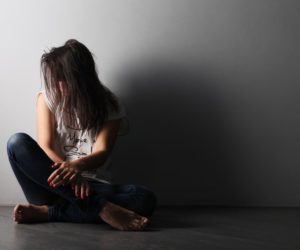6 Signs of Opioid Addiction in Adults

Familiarizing Yourself with the Signs of Opioid Addiction in Adults
Opioid addiction is an extremely serious issue in the United States today. For the most part, these medications, when prescribed by a physician, are safe when taken over a short period of time. However, since they cause euphoria in addition to relieving pain, people often misuse them (by taking more than the prescribed dosage, for example). Do you suspect someone you love of abusing opioids? Learn about the signs of opioid addiction in adults and call White Sands Treatment at (877) 855-3470.
Regular use of opioids may lead to dependence – even if prescribed by a doctor. If these medications are misused, it may very well lead to overdose, or even death. Just because a doctor prescribes a medication does not mean it is safe to abuse. Heroin, which is not something prescribed by physicians, is also included in the class of opioids. Heroin is a highly addictive and highly illegal substance.
Classic Signs of Opiate Addiction
- Being on “the defense.” People who abuse drugs will become defensive if one tries to confront them about their addiction. This a tell-tale sign – so do not discount it if you feel as though the person is skirting the issue. Chances are – you are right in your suspicions. Statements like, “I can stop anytime I want to” or “I am only hurting myself” are signs of opioid addiction in adults.
- Playing the “blame game.” The addict will blame anyone or anything for their drug abuse. Taking responsibility is not something drug addicts do. However, when there is no one or nothing to place the blame on – they must understand that the problem is theirs – and theirs alone.
- Classic signs of opiate addiction include isolation. This can be very dangerous, indeed. They will convince themselves that one loves them and no one understands what they are going through. They tell themselves that they do not fit in anywhere to justify their isolation and drug use. This is a problem. The longer the individual remains in isolation, the worse the addiction will become.
- Sometimes an addict will experience guilt or shame because of the fact that they cannot stop what they are doing. They are no longer in control of themselves and they know it. Sometimes, they need someone to intervene. Opiate addiction signs are not necessarily just physical – they are emotional as well. So, keep your eye out.
- Time and effort. It is hard to be an addict. You do everything you can to hide your addiction, first of all, and you dedicate your waking hours to getting high. Signs of opioid addiction in adults include missing work or other commitments and becoming estranged from friends and family.
- Being secretive. Addicts believe themselves to be cunning and imaginative. But the reality is that after a while, they are not fooling those close to them – they are only fooling themselves.
Physical opioid addiction signs include, but are not limited to:
- Constipation
- Drowsiness
- Elation and euphoria
- Constricted pupils
- Slowed breathing
- Nodding off – or losing consciousness
- Mood swings
- Extra “pill bottles” in the trash can or laying around
When one stops taking opioids, withdrawal symptoms will set in. The symptoms tend to mimic the flu:
- Insomnia
- Fatigue
- Anxiety
- Headache
- Diarrhea
- Vomiting
- Nausea
Long-term symptoms of opioid abuse include:
- Serious respiratory depression
- Gastric problems (mild to severe) such as constipation or bowel perforation
People who take opioids over the long-term tend to build up a tolerance, which creates an issue when they attempt to cease use. Now the person will have to endure withdrawal symptoms. This is troublesome because if the symptoms are too intense, people tend to return to the drugs. If you or a loved one have become addicted to opioid medication, please seek help immediately. If you have any questions regarding opioid addiction signs, call White Sands Treatment at (877) 855-3470.
If you or a loved one needs help with abuse and/or treatment, please call the WhiteSands Treatment at (877) 855-3470. Our addiction specialists can assess your recovery needs and help you get the addiction treatment that provides the best chance for your long-term recovery.
